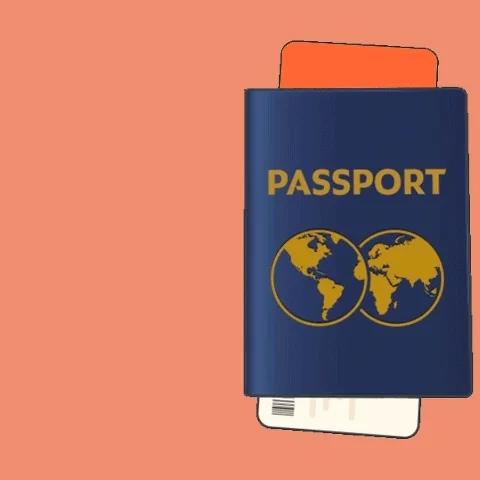 Julia, a recent high school graduate, was accepted into a university in another country. Excited about the news, she and her parents are ready to begin preparation for the freshman's first year away from home.
Julia, a recent high school graduate, was accepted into a university in another country. Excited about the news, she and her parents are ready to begin preparation for the freshman's first year away from home.
However, they came to a brick wall wondering what Julia would need to survive as a student in a foreign country.

If you're like Julia and her parents, and you're not sure where to start, you can begin by creating a 7-piece international student survival kit.
Travel Documents
 Imagine standing at the check-in-counter or at customs only to be rejected and not allowed to board your plane because of a missing travel document.
Imagine standing at the check-in-counter or at customs only to be rejected and not allowed to board your plane because of a missing travel document.
Disappointing, isn't it?
This might seem like a no-brainer, but having the correct travel documents for international study is very important.

Before traveling, international students should research all required travel documents for their country of study.
Important documents might include:
valid passport
student visa
boarding pass
letter of proof of acceptance/enrollment from the college or university
proof of financial support to pay living expenses
other valid forms of identification such as a national I.D
Keep travel documents where they can be easily found, and safe from potential damage. Check out this article on travel documents required for study in the United States.
Quiz
Julia forgot to bring her proof of study documents to the airport. She realizes this just before meeting the immigration officers at customs. Which of the following will likely happen?
Medicine Bag and First Aid Kit


No one wants to become ill or injured while studying thousands of miles away from home, but it wouldn't hurt to be prepared.
Keep a first aid kit handy.
Have a sufficient supply of your prescriptions.
Keep painkillers, creams, or band-aids near.
A medicine bag and first aid kit should only be used to treat minor injuries or illnesses. Visit the school's medical facilities or a local hospital for treatment of major injuries.
You should also make sure that you have appropriate medical insurance before you go, and keep any insurance documents with you in case you need to go to the hospital.
Personal Care Bag


There's a saying that goes, "first impressions are lasting ones." Keep a personal care bag packed and handy. Items to put in your personal care bag can include:
comb and brush
toothpaste, toothbrush, and floss
hygiene products such as face and body soap, deodorant, and sanity napkins
a change of clothing and undergarments
Meal Bag


As college life can be time-consuming and fast-paced, you may be too busy to prepare a meal. Keep a meal bag in arm's reach with nutritious items. These can include:
cereal and bars
dried fruit
canned foods
water
Laundry Bag

Having a clean environment is important to your health and success as a college student. Use a laundry bag to organize clothes that are about to washed and reduce clutter in your space.

Tool Kit
 At times you may have to engage in the repair and maintenance of items in your space.
At times you may have to engage in the repair and maintenance of items in your space.

This might include assembling electronic devices, and furniture, or making minor repairs to other household/apartment/dormitory items. Keep a tool kit with items such as a screwdriver, batteries, and tape measure handy.
If the maintenance required is on a professional level, contact the relevant personnel who are available at your school/place of residence.
Organizer


An organizer can can help you:
keep abreast of the change in time zone from your native country to your country of study
keep your schedule neat
navigate the world of college
meet deadlines
attend classes on time
make time for rest and recreation
Quiz
Julia's lecturer handed out the course readings and assignment schedule and told the class that they wouldn't meet again until midterms. However, they must meet all deadlines. How can Julie use the organizer to meet these deadlines? Select all that apply:
Take Action
Now that you've read my recommendations, it's time for you to get started on creating your survival kit!

Your feedback matters to us.
This Byte helped me better understand the topic.
